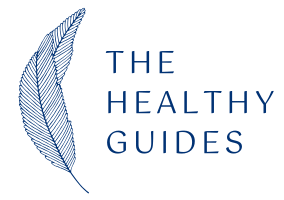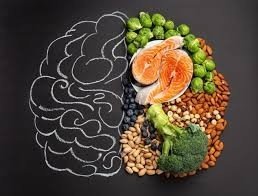Improving Mental Health, Awareness, and Daily Wellness
Welcome to TheHealthyGuides.com, your trusted mental health Tips on the journey toward emotional resilience and well-being. In today’s fast-paced, stressful world, nurturing your mind with intention has never been more important. Mental health is more than the absence of illness—it’s essential for living fully, building meaningful connections, and finding true balance.
Whether you’re struggling with stress, anxiety, depression, or simply want to strengthen your emotional well-being, this guide is designed to give you practical, science-backed strategies. Here, we’ll explore ways to improve your mental health, introduce exercises for daily practice, highlight the significance of mental health awareness, and provide a structured routine to combat anxiety and depression. By the end, you’ll have a roadmap to live a more mindful, peaceful, and empowered life.
Understanding Mental Health
Mental health Tips: Mental health refers to your emotional, psychological, and social well-being. It affects how you think, feel, and act in daily life, influencing your ability to handle stress, maintain relationships, and make decisions. Common challenges include:
- Anxiety: Excessive worry, fear, or tension.
- Depression: Persistent sadness, low energy, or disinterest in life.
- Stress: Physical or mental tension caused by daily pressures.
The good news? Mental health is malleable. Through awareness, daily practices, and professional support when needed, you can enhance your resilience, happiness, and overall well-being.
Why Mental Health Awareness Matters
Mental Health Tips Month (May) is more than just a calendar event. It is a time to break stigma, educate communities, and empower individuals to prioritize their emotional well-being. Awareness activities include:
- Workshops and seminars on mental health
- Online campaigns sharing personal stories and resources
- Community activities such as walks, support groups, and mindfulness events
Spreading awareness helps create supportive environments, encourages conversations about mental health, and makes it easier for those struggling to seek help.
High-Impact Strategies to Improve Mental Health
- Physical Activity
Exercise releases endorphins, improves sleep, reduces stress hormones, and enhances cognitive function. Aim for at least 30 minutes of moderate activity most days. Options include walking, cycling, yoga, or even dancing at home. - Mindfulness and Meditation
Mindfulness encourages present-moment awareness. Meditation calms the nervous system, reduces anxiety, and strengthens emotional regulation. Start small—5–10 minutes a day—and gradually extend your practice. - Adequate Sleep
Sleep restores brain function, balances mood, and improves focus. Maintain a regular sleep schedule, limit screen exposure before bed, and create a relaxing nighttime environment. - Healthy Nutrition
Your brain thrives on nutrient-rich foods. Include fruits, vegetables, lean proteins, whole grains, and omega-3 fatty acids in your diet. Avoid processed sugars and excessive caffeine, which can exacerbate anxiety and mood swings. - Social Connections
Engaging with family, friends, or communities fosters emotional resilience. Even short, meaningful interactions can significantly reduce feelings of isolation and improve mood.
Effective Mental Health Exercises
Here are exercises backed by research to enhance emotional well-being:
- Gratitude Journaling: Writing daily about things you are grateful for shifts focus from negativity to positivity.
- Cognitive Behavioral Techniques: Challenge negative thoughts by reframing them in realistic, constructive ways.
- Progressive Muscle Relaxation: Reduces physical tension and stress through systematic muscle relaxation.
- Visualization: Imagine calm scenarios or successful outcomes to reduce anxiety and build confidence.
- Breathing Techniques: Deep, controlled breathing lowers cortisol levels and calms the mind. Try the 4-7-8 method: inhale 4 seconds, hold 7, exhale 8.
Creating a Daily Routine for Mental Wellness
Consistency is key. A structured routine can combat depression and anxiety while improving overall mental health. The table below provides a sample day-to-day plan to guide you:
| Time of Day | Activity | Purpose / Benefit | Notes |
| 6:30 AM – 7:00 AM | Morning meditation | Reduces anxiety, sets a calm tone | Start with 5–10 minutes and increase gradually |
| 7:00 AM – 7:30 AM | Gratitude journaling | Promotes positivity and resilience | Write 3–5 things you are grateful for |
| 7:30 AM – 8:00 AM | Light exercise / walk | Boosts endorphins, enhances energy | Outdoors is best for sunlight exposure |
| 8:00 AM – 9:00 AM | Healthy breakfast | Supports brain and body function | Include protein, fruits, and whole grains |
| 9:00 AM – 12:00 PM | Focused work / productive tasks | Builds confidence and structure | Take short 5-min breaks every hour |
| 12:00 PM – 12:30 PM | Mindful lunch | Encourages mindful eating | Avoid screens while eating |
| 1:00 PM – 3:00 PM | Creative or reflective work | Enhances self-expression | Writing, art, or problem-solving |
| 3:00 PM – 3:15 PM | Short walk / stretch | Reduces stress and eye strain | Can improve energy for the rest of the day |
| 3:15 PM – 5:00 PM | Light productive work | Maintains momentum | Keep tasks manageable |
| 5:00 PM – 6:00 PM | Social interaction / calls | Reduces isolation | Reach out to friends/family |
| 6:00 PM – 7:00 PM | Dinner | Balanced nutrition | Include vegetables, lean proteins |
| 7:00 PM – 8:00 PM | Relaxation / hobby | Reduces stress and boosts joy | Reading, crafts, music, or gaming |
| 8:00 PM – 8:30 PM | Reflection journaling | Process emotions and progress | Write challenges, solutions, or feelings |
| 8:30 PM – 9:30 PM | Digital detox & wind-down | Prepares for sleep | Limit screens, dim lights, relax |
| 9:30 PM – 10:00 PM | Sleep preparation & meditation | Promotes restful sleep | Deep breathing or light stretching |
This routine is flexible and can be adjusted according to individual schedules. Consistency, however, is what brings results.
Lifestyle Habits to Strengthen Mental Health
- Limit Caffeine and Alcohol: Both can exacerbate anxiety and disrupt sleep.
- Digital Detox: Reduce screen time, especially before bed, to improve sleep quality and reduce overstimulation.
- Nature Exposure: Spending time outdoors reduces stress and improves mood.
- Hobbies and Creativity: Engaging in creative activities provides emotional release and satisfaction.
- Regular Check-ins: Monitor mood patterns to notice triggers and improvements over time.
Professional Support: When and Where to Seek Help
While self-care is powerful, professional support can be critical for those experiencing persistent depression or anxiety. Options include:
- Therapists and Counselors: Offer structured guidance and coping strategies.
- Psychiatrists: Prescribe medication when necessary for mental health conditions.
- Support Groups: Share experiences and coping strategies with peers.
- Hotlines & Online Support: Immediate help during crises.
Remember: Seeking help is a strength, not a weakness.
🧠 FAQs: Enhancing Mental Health Through Daily Routines and Exercises
1. What are the best daily habits to improve mental health?
Incorporating consistent habits is one of the most effective ways to boost your emotional and psychological well-being. Some key daily habits include:
- Regular Exercise: Physical activity releases endorphins, which naturally reduce stress, anxiety, and mild depressive symptoms. Even a 20–30 minute walk daily can make a difference.
- Mindfulness Meditation: Practicing mindfulness helps you stay present, regulate emotions, and reduce overthinking. Start with 5–10 minutes per day.
- Adequate Sleep: Consistently getting 7–9 hours of sleep each night supports brain function, mood, and resilience.
- Balanced Nutrition: Eating a diet rich in fruits, vegetables, whole grains, and lean proteins nourishes your brain and improves mental clarity.
- Social Connection: Regular interaction with friends, family, or supportive communities strengthens emotional resilience and reduces feelings of isolation.
2. How can I create a daily routine to combat depression and anxiety?
Here are some practical mental health tips to build a structured daily routine that provides stability, reduces stress, and helps manage symptoms of depression and anxiety:
- Morning Meditation: Begin your day with 5–10 minutes of mindfulness to set a positive tone.
- Physical Activity: Incorporate at least 30 minutes of exercise, whether walking, yoga, or light strength training.
- Healthy Meals: Eat balanced meals to maintain energy and mood stability throughout the day.
- Task Management: Break larger tasks into smaller, manageable steps to prevent overwhelm.
- Evening Reflection: End your day by journaling thoughts, processing emotions, and noting things you’re grateful for.
For a comprehensive daily routine, refer to the structured routine table in our mental health guide above.
3. What exercises are effective for reducing anxiety and depression?
Certain exercises are particularly effective at improving mood, reducing stress, and enhancing mental resilience:
- Aerobic Exercise: Running, swimming, cycling, or even brisk walking boosts endorphins and improves overall mood.
- Strength Training: Weightlifting or resistance exercises enhance mental clarity and self-esteem.
- Yoga & Tai Chi: These practices combine gentle movement with mindfulness, promoting relaxation and emotional balance.
- Nature Walks: Spending time outdoors in natural settings helps reduce anxiety and improves focus.
4. How does Mental Health Awareness Month contribute to well-being?
Mental Health Awareness Month (May) plays a vital role in fostering mental wellness by:
- Education: Providing knowledge about mental health conditions and reducing societal stigma.
- Community Support: Encouraging open conversations and peer networks to offer emotional support.
- Resource Visibility: Highlighting accessible tools, professional help, and self-care strategies.
- Advocacy: Promoting policies and initiatives that prioritize mental health care and support systems.
Participating in awareness campaigns helps normalize mental health discussions and empowers individuals to seek help when needed.
5. Can a daily routine really improve mental health?
Absolutely! Consistent daily routines provide structure, reduce uncertainty, and strengthen emotional resilience. Benefits include:
- Reduced Anxiety: Predictable routines help the mind feel organized and secure.
- Enhanced Productivity: Structured schedules improve focus, efficiency, and sense of accomplishment.
- Promotion of Healthy Habits: Regular sleep, exercise, and meal times support both physical and mental well-being.
- Increased Resilience: Over time, maintaining routines builds coping skills and emotional stability.
Following a structured routine is a cornerstone of our mental health guide and can be customized to meet individual needs and schedules.
Conclusion: Invest in Your Mental Well-Being
At TheHealthyGuides.com, we emphasize that our mental health Tips can support you throughout your lifelong journey toward well-being. By adopting daily routines, mindfulness practices, physical activity, proper nutrition, and social connections, you can reduce anxiety, combat depression, and enhance overall mental health.
Your mind is the foundation of your life—nurture it, protect it, and celebrate it. Small, consistent actions every day create lasting change. Share your journey, encourage others, and build a community where mental health is valued and prioritized.
Did you know that what you eat in the morning can affect sleep quality at night? A balanced breakfast supports stable circadian rhythms—discover more in our Sleep Health articles.
For more tips and support, visit our Facebook page.







